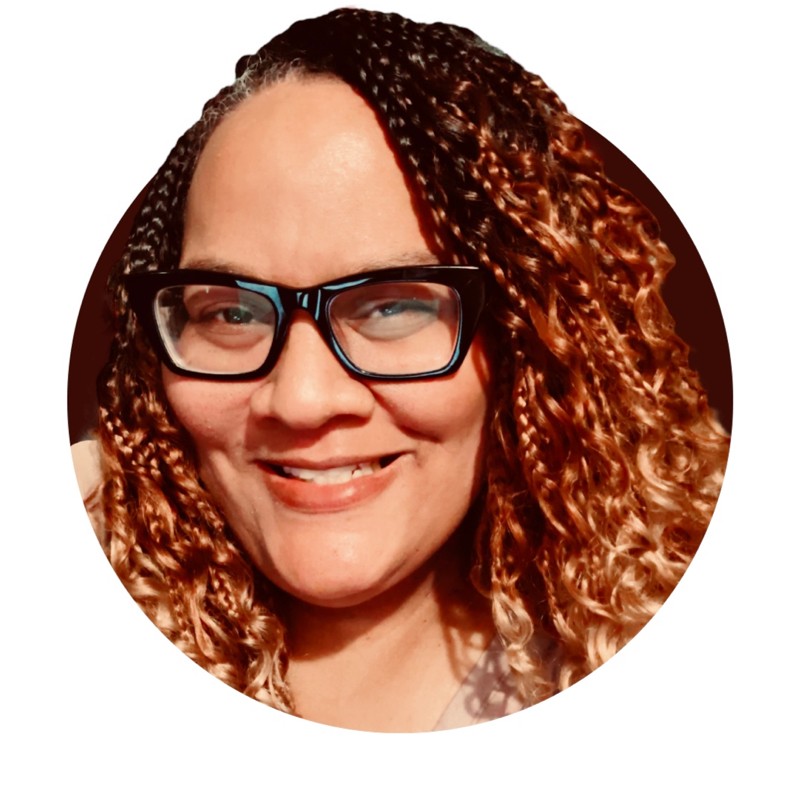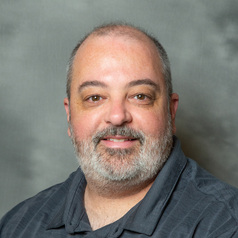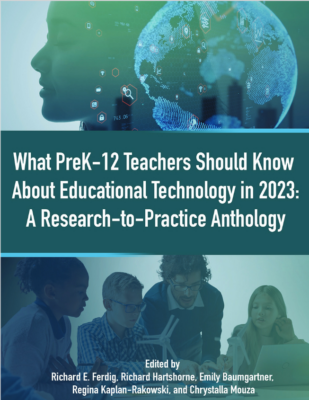Monday, August 7, 9:00 AM EDT
Inclusive Learning and the Future of Edtech in a World with AI
Rafranz Davis, Associate Content Manager at Linkedin (AEC) | Former K-12 Edtech & Learning Leader
Abstract: In this keynote, we will delve into the intersection of Inclusive Learning and Edtech, sharing lessons from my roles as a K-12 school technology leader through my current role, managing adult learning content. I’ll highlight the key principles of equity, access, and inspiration that play a crucial role in crafting meaningful learning experiences for all.
The transformative potential of AI and Edtech in democratizing education and fostering passion in learners will be central to this discussion and through my unique experiences, I’ll share practical strategies for creating inclusive and engaging learning opportunities, relatable to any level of learner.
Join me as we explore the future of inclusive learning, a journey propelled forward by the transformative power of technology.
 Bio: Rafranz Davis is an educator with 15+ years of experience advocating for digital equity and innovative uses of technology in the classroom and beyond. She’s worn many hats over the years – from teaching math to leading digital learning initiatives and even venturing into the world of computer science. After leaving education in 2020, she embarked on a new journey, consulting with companies, strategizing ways to scale technology initiatives for schools. This work solidified her passion for creating digital learning opportunities for all and further informed my transition to where she am now, with Linkedin as an Associate Content Manager.
Bio: Rafranz Davis is an educator with 15+ years of experience advocating for digital equity and innovative uses of technology in the classroom and beyond. She’s worn many hats over the years – from teaching math to leading digital learning initiatives and even venturing into the world of computer science. After leaving education in 2020, she embarked on a new journey, consulting with companies, strategizing ways to scale technology initiatives for schools. This work solidified her passion for creating digital learning opportunities for all and further informed my transition to where she am now, with Linkedin as an Associate Content Manager.
Monday, August 7, 11:30AM EDT
Meet the Editor – JTATE: Opportunities, Future Directions, and Tips for Authors
Richard Hartshorne, JTATE Editor, University Central Florida
 Bio: Dr. Richard Hartshorne is a Professor and Coordinator for the Instructional Design & Technology program at the University of Central Florida (UCF), and currently serves as the Chair of the Department of Learning Sciences and Educational Research. He earned his Ph.D. in Curriculum and Instruction with a focus on educational technology production and technology and teacher education from the University of Florida. Prior to his tenure at the UCF, Richard was an Assistant and Associate Professor of Instructional Systems Technology at the University of North Carolina at Charlotte and a physics instructor at Ed White High School in Jacksonville, FL. At the UCF, his teaching focuses on the integration of technology into the educational landscape, as well as instructional design and development. His research interests primarily involve the production and effective integration of instructional technology into the teaching and learning environment. The major areas of his research interest are rooted in technology and teacher education, the integration of emerging technology into the k-post-secondary curriculum, and online teaching and learning. He is currently the Editor-in-Chief of the Journal of Technology and Teacher Education, and his articles have appeared in such publications as the International Journal of Gaming and Computer-Mediated Simulations, the Journal of Digital Learning in Teacher Education, Internet and Higher Education, the Journal of Educational Computing Research, and others. He has also authored and edited numerous books and book chapters and serves in editorial capacities for a number of journals in his field.
Bio: Dr. Richard Hartshorne is a Professor and Coordinator for the Instructional Design & Technology program at the University of Central Florida (UCF), and currently serves as the Chair of the Department of Learning Sciences and Educational Research. He earned his Ph.D. in Curriculum and Instruction with a focus on educational technology production and technology and teacher education from the University of Florida. Prior to his tenure at the UCF, Richard was an Assistant and Associate Professor of Instructional Systems Technology at the University of North Carolina at Charlotte and a physics instructor at Ed White High School in Jacksonville, FL. At the UCF, his teaching focuses on the integration of technology into the educational landscape, as well as instructional design and development. His research interests primarily involve the production and effective integration of instructional technology into the teaching and learning environment. The major areas of his research interest are rooted in technology and teacher education, the integration of emerging technology into the k-post-secondary curriculum, and online teaching and learning. He is currently the Editor-in-Chief of the Journal of Technology and Teacher Education, and his articles have appeared in such publications as the International Journal of Gaming and Computer-Mediated Simulations, the Journal of Digital Learning in Teacher Education, Internet and Higher Education, the Journal of Educational Computing Research, and others. He has also authored and edited numerous books and book chapters and serves in editorial capacities for a number of journals in his field.
Tuesday, August 8, 12PM EDT
How Educational Technologists and Teacher Educators can help Bridge the Research to Practice Gap
Rick Ferdig, Director of AACE Publications, Kent State University
Abstract: Educational research does not always impact practice in ways that researchers and practitioners would like. This is an enduring problem that also impacts educational technology and teacher education. In attempt to address this problem, an open-access, edited book was compiled by AACE titled, “What PreK-12 teachers Should Know About Educational Technology in 2023: A Research-to-Practice Anthology.” This recently released book provides 45 chapters and over 450 pages of text written from authors around the world who are helping to support the move from research to practice. In this invited presentation, the editors of the book will briefly discuss the origin of the book as well as broad findings from the process. Several authors from the book will also be present to briefly discuss their chapter, talk about the research-to-practice gap, and answer questions about their work.

Bio: The moderator for this session, Richard E. Ferdig, Ph.D., is the Summit Professor of Learning Technologies and Professor of Educational Technology at Kent State University. He works within the Research Center for Educational Technology and also the School of Teaching, Learning, and Curriculum Studies. He earned his Ph.D. in Educational Psychology from Michigan State University. He has served as researcher and instructor at Michigan State University, the University of Florida, the Wyzsza Szkola Pedagogiczna (Krakow, Poland), and the Università degli studi di Modena e Reggio Emilia (Italy). At Kent State University, his research, teaching, and service focus on combining cutting-edge technologies with current pedagogic theory to create innovative learning environments. His research interests include online education, educational games and simulations, the relationship between faith and technology, international education, and what he labels a deeper psychology of technology. In addition to publishing and presenting nationally and internationally, Ferdig has also been funded to study the impact of emerging technologies such as augmented reality, virtual reality, and K-12 Virtual Schools. Rick was the founding Editor-in-Chief of the International Journal of Gaming and Computer Mediated Simulations, the past Editor-in-Chief of the Journal of Technology and Teacher Education, a Consulting Editor for the Development Editorial Board of Educational Technology Research and Development, and the current Editor-in-Chief of the Journal of Interactive Learning Research.
Tuesday, August 8, 2:15 PM EDT
Meet the Editors: Publishing About K-12 Online and Blended Learning Research and Practice

 JOLR Editors Mary Rice & Associate Editor Michael Barbour
JOLR Editors Mary Rice & Associate Editor Michael Barbour
Take advantage of this opportunity to meet & talk with the editors of the Journal of Online Learning Research (JOLR). We envision this as an informal conversation about crafting your work for JOLR or potentially other venues. Of particular interest may be a new section in JOLR, the Practitioner Corner, which is focused on explanations & reflections on educational innovations. These articles should reveal trends in educational needs & everyday factors that influence K-12 distance, online, and blended learning. Articles in the Practitioner Corner section should go beyond “Did it work?” to explore how interventions function and the boundaries of their scalability. Editors will answer questions about the journals, discuss the submission & review processes, & provide attendees with advice on how to increase the likelihood of publication.
Tuesday, August 8, 3:30 PM EDT
Designing Tools that Lower the Threshold of Creativity:Three Educational Pioneers Discuss the Future
Roger Wagner, John Maloney, Glen Bull
Abstract: Alan Kay once commented that “A point of view is worth 40 IQ points.” As a case in point, Alan Kay and a team at the Xerox Palo Alto Research Center designed an educational computing language inspired by Logo that altered the course of computing. Smalltalk featured a graphical user interface with overlapping windows and a mouse that all modern computing systems use today.
These features became the standard on both Apple and Microsoft computers, lowering barriers to creativity. Roger Wagner and John Maloney share the distinction of designing widely-used tools that also lower barriers to creativity. The graphical user interface made Bill Atkinson’s HyperCard feasible. Building on this foundation, Roger Wagner developed a multimedia studio inspired by the card-and-links metaphor of HyperCard. HyperStudio enabled students to be creators as well as consumers and create content that incorporated color, sounds, animations, and video. Because it reduced barriers to creativity, HyperStudio became the most widely used creative tool used in schools with more than a million users. The visionary Ted Nelson (who developed the terms hypertext and hyermedia) described HyperStudio as a “paradigm challenge of a serious nature.”
Similarly, after working with Alan Kay in research laboratories at Apple Computer and Walt Disney Imagineering, John Maloney participated in development of a new graphical approach to programming. He served as the lead programmer for the initial implementation of Scratch, developed in the MIT Media Laboratory using Smalltalk. This approach was so successful that today Scratch is the twelfth most used programming language in the world according to the TIOBE index, and has inspired development of many other educational programming languages.
These tools were successful because they lowered barriers to creativity. HyperStudio made it possible for novices to create complex logic structures without learning text-based programming languages. Scratch reduced syntax errors and typographical mistakes through use of a block-based coding structure. These strategies lower the barriers to creativity, enabling students to create complex structures to produce art, music, and games.
Alan Kay also said that “The best way to predict the future is to invent it.” Today, Roger and John are collaborating on development of tools that will lower the threshold of creativity for hardware as well as software. The advent of fabrication tools such as 3D printers and microcontrollers made it possible, in the words of M.I.T.’s Center for Atoms and Bits, for “anyone to create (almost) anything.” John Maloney developed MicroBlocks, a block-based language inspired by Scratch. After meeting John Maloney at the 2022 National Technology Leadership Summit (NTLS), Roger designed a microcontroller built around MicroBlocks. The MakerPort can connect sensors, LEDs, motors, and actuators using MicroBlocks. Specially designed connectors make it possible to invent devices and mechanisms without soldering. The combination of MakerPort with MicroBlocks lowers the barrier to the creation of educational objects.
Libraries are also crucial tools that lower the threshold of creativity, by enabling others to replicate great ideas captured in books. Roger Wagner and John Maloney are collaborating with Glen Bull to develop a library for educational objects that can be described as a Thingiverse for Teachers. Glen, a founder of the Society for Information Technology and Teacher Education (SITE) and the founder of NTLS, is the principal investigator for an NSF grant (#2229627) for development of an open-source peer-reviewed Educational CAD Model Library. In this special keynote session, Roger, John, and Glen will demonstrate how the MakerPort with MicroBlocks can lower the threshold to creation of educational objects, and how these objects can be shared with other educators through publication in the NTLS CAD Library.


 Bios: Glen Bull is a professor of education at the University of Virginia and founder of the School of Education’s educational computing program, established in 1976. He served as principal investigator for establishment of Virginia’s Public Education Network, one of the nation’s first K-12 internet systems, connecting all 2,000 of Virginia’s schools. He is a founder of the Society for Information Technology and Teacher Education (SITE). He is a recipient of SITE’s lifetime achievement award and a recipient of the Lynn P. Barrier Engineering Leadership Award for “state and national leadership in developing curricular and instructional resources that advance the study of design and engineering in K-12 education.” He is the founder of the National Technology Leadership Summit (NTLS) coalition. He is the founding editor of the CITE Journal. He is currently collaborating on development of an Educational CAD Model Library, designed as a Thingiverse for Teachers.
Bios: Glen Bull is a professor of education at the University of Virginia and founder of the School of Education’s educational computing program, established in 1976. He served as principal investigator for establishment of Virginia’s Public Education Network, one of the nation’s first K-12 internet systems, connecting all 2,000 of Virginia’s schools. He is a founder of the Society for Information Technology and Teacher Education (SITE). He is a recipient of SITE’s lifetime achievement award and a recipient of the Lynn P. Barrier Engineering Leadership Award for “state and national leadership in developing curricular and instructional resources that advance the study of design and engineering in K-12 education.” He is the founder of the National Technology Leadership Summit (NTLS) coalition. He is the founding editor of the CITE Journal. He is currently collaborating on development of an Educational CAD Model Library, designed as a Thingiverse for Teachers.
John Maloney is best known as one of the co-creators of Scratch, which he worked on for its first eleven years. He also helped create Squeak Smalltalk, EToys, GP Blocks, and the Morphic UI framework. At MicroBlocks, John is the lead developer for both the virtual machine and the programming environment, as well as a member of the Project Leadership Committee. He holds B.S. and M.S. degrees from MIT and a Ph.D. in Computer Science from the University of Washington.
Roger Wagner was the founder of one of the first software companies for Apple computers in the very early years of personal computing. Wagner authored the first book on assembly language programming for the Apple II. In the words of Steve Wozniak, co-founder of Apple computer, “Roger Wagner didn’t just read the first book on programming the Apple computer – he wrote it.”
He saw the educational potential of hypermedia long before the advent of the web. He developed the hypermedia authoring software, HyperStudio, which had a significant influence in education. The noted educator Doug Peterson once said,“If you do anything with technology in your classroom, your approach most assuredly has Roger Wagner’s influence all over it.
He holds a variety of patents in educational technology, and served on the Board of Directors of the California affiliate of ISTE for six years. Most recently, he has pioneered new ways of creating student-made projects in physical computing.
Wednesday, August 9, 6:30 PM EDT
Closing Keynote: Revisioning the Interactive in “SITE Interactive”: SITE’s Future Directions for Collaboration

 SITE Interactive Chair Cecil Short and SITE President Jake Cohen
SITE Interactive Chair Cecil Short and SITE President Jake Cohen









